Search
Remove Ads
Advertisement
Summary 
Loading AI-generated summary based on World History Encyclopedia articles ...
Search Results

Interview
Interview: Arcadian Days by John Spurling
Join World History Encyclopedia as they sit down with John Spurling to talk about his new book of Greek mythology retellings Arcadian Days, published by Pegasus Books. Kelly: Thank you so much for joining me to talk about your book Arcadian...

Image
Arcadian Days: Gods, Women, and Men from Greek Myths
Arcadian Days: Gods, Women, and Men from Greek Myths by John Spurling and published by Pegasus Books.
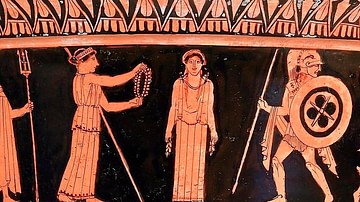
Definition
Works and Days
Works and Days is an epic poem written in dactylic hexameter, credited to the 8th-century BCE Greek poet Hesiod. Hesiod is generally remembered for two epic works, Theogony and Works and Days but, like his contemporary Homer, he was part...
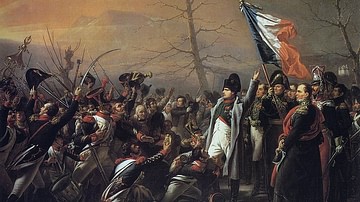
Definition
Hundred Days
The Hundred Days refers to the second reign of French Emperor Napoleon I, who unexpectedly returned from exile to reclaim the French throne. It encompasses Napoleon's triumphant return to Paris on 20 March 1815, his climactic defeat at the...
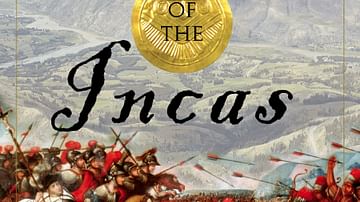
Interview
Interview: The Last Days of the Incas (Kim MacQuarrie)
How did a mere 167 Spaniards conquer an empire of 10 million people? The Spanish were outnumbered 200-to-1 yet they were able to seize the Inca capital, Cuzco, and dispose of the Inca ruler within only a year. Kim MacQuarrie's The Last Days...

Article
Plato's Greater, Better World in The Last Days of Socrates
The Last Days of Socrates is a modern-day title for the collection of four Socratic dialogues by the Greek philosopher Plato – the Euthyphro, Apology, Crito, and Phaedo – telling the story of the trial, imprisonment, and death of Socrates...

Article
Ten Juneteenth Myths
The celebration of Juneteenth – originally known as "Freedom Day" – began on 1 January 1866 in Texas and, since then, a number of myths have grown up around the event it commemorates: the issuance of General Order No. 3 in Galveston Texas...

Definition
Greek Mythology
Greek mythology was used as a means to explain the environment in which humankind lived, the natural phenomena they witnessed and the passing of time through the days, months, and seasons. Greek myths were also intricately connected to religion...
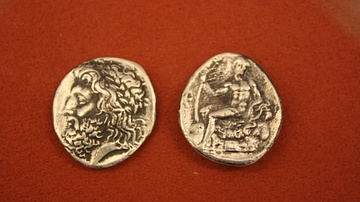
Image
Arcadian Silver Stater
Silver stater of the Archadian League, c. 360 BCE. O: Head of Zeus Lykaios. R: Seated Pan.
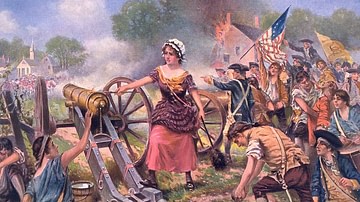
Article
Women in the American Revolution
In Colonial America, women were discouraged from taking an interest in politics and were instead expected to focus only on traditionally 'feminine' matters, such as homemaking and childrearing. However, such gender roles were challenged during...